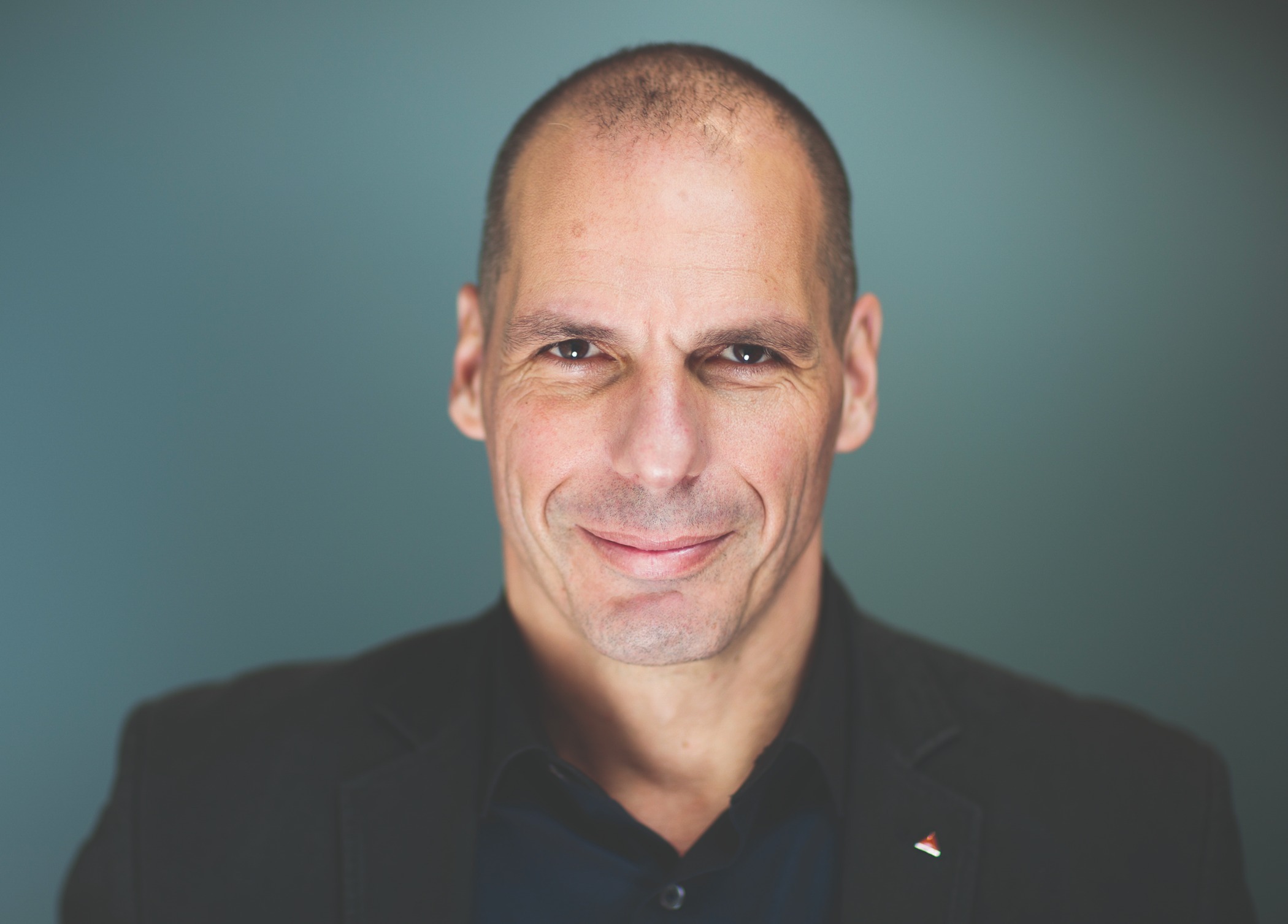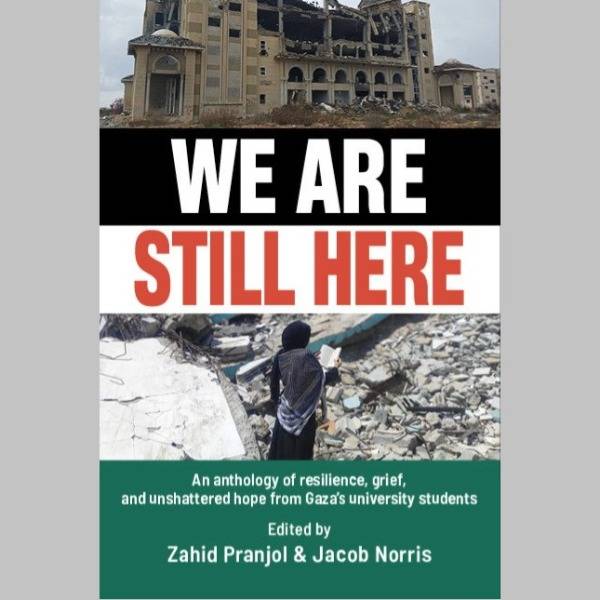
Yanis Varoufakis is an economist, head of the radical MeRA25 party in Greece, and a working MP in Athens’ Hellenic Parliament. He previously served as Greece’s finance minister, and is the author of several best-selling books about economics and global capitalism. His latest book “Another Now: Dispatches from an Alternative Present” (Bodley Head) is a novel which imagines a world in which “Occupy and Extinction Rebellion actually won” – with no banks, no stock market and no tech giants.
You normally write non-fiction. Why turn to science fiction with your latest book?
I was trying to imagine a [scenario] where a post-capitalist world could be desirable. I wanted to blend into my narrative a Platonic dialogue that connects radical politics with philosophical questions like: what would make us genuinely happy? Who are we? And what is [life] all about? Plato [often talked] about how a craving for power enslaves human beings as much as it liberates them. We can stop politics from creating new forms of tyranny if we maintain a genuine and honest dialogue with ourselves about what matters to us as humans. Talking honestly about politics means talking about our existential angst as human beings.
The novel explores questions of technology and power. Are we powerless against big tech?
The first step is understanding our own power. If you are plugged into your laptop at home you don’t feel you have power. You are a consumer who is isolated, and facing a Goliath. But collectively you have immense power, if only you can get organised. The creation of trade unions during the 19th century taught us this. We need to envision a technological world in which power comes to the many.
Your novel imagines the European Central Bank (ECB) giving every adult citizen in the Eurozone a free current account. Could this work in reality?
The Central Bank in China is already giving [every citizen] a bank account because it’s introducing a digital currency. Effectively, this means the money you have is with the Central Bank. Digitisation of money is unstoppable and it will eventually see residents of Eurozone countries having a [personal] account with the ECB. This will change the role of commercial banks. If all Eurozone residents have a digital account with the ECB – with a pin number that allows them to carry out transactions, etc – why would the ECB first give the money to, say, Deutsche Bank? If you combine this idea with the end of the share market you overcome the complete [domination] of financial markets as we presently understand them.
So you want to abolish global financial markets?
I want a market society. But there are two markets I can easily live without: the share market, including the money market. And the labour market. These are creating a class division between capitalism and human interest.
Is the scenario you are describing a world where Marx’s surplus value theory no longer exists?
Yes. I want to see the end of Marxism. But that is what every Marxist wants. Marxism is just a theory of capitalism.
Why are you so critical of capitalism?
I believe capitalism enslaves everybody: both the rich and the poor. In Das Kapital Marx explains the angst of the capitalist who has to squeeze every ounce of value from the workers. If the capitalist doesn’t do this, somebody else will undercut them [and] they will go bankrupt.
What would a post-capitalist society look like?
I cannot predict the future. Every era keeps making the mistake that capitalism is here to stay for ever. Because we live in a capitalist society, people assume it’s the natural order of the world and it will remain like this indefinitely. But citizens of the Roman Empire could never envision the empire collapsing. Capitalism is not going to continue.
What will bring about its demise?
When you combine the exorbitant privilege of bankers who can create money out of thin air with share markets, you have a situation where democracy is impossible. The main problem is power tends to be invested with the financiers and the bankers.
It’s not the left that is going to overthrow capitalism, it’s capitalism itself. There will no longer be any need for corporations if you can print a car, a washing machine or a solar panel. The old idea of capitalism is finished. I don’t assume what follows capitalism will automatically be good. It could be a dystopia. But a post-capitalist world is going to happen anyway.
Why are the left so weak globally at the moment?
To answer that we need to go back to the beginning of the 20th century: when the left backed two horses to detrimental effects. [Some] supported communism in the Soviet Union: that road led to the Gulag and the dictatorship of a bureaucracy. [Others] went towards social democracy.
Where did the social democrats go wrong?
They made two grave mistakes. Firstly, to ditch the narrative of liberty and emancipation. This had been part of the Marxist tradition in the 19th century. The whole point of the left was to break the shackles: for workers and for women. But the left ditched freedom for equality and justice. But one must ask: equality of what? Also, justice is a fluffy term with very little meaning.
Secondly, social democrats sold their soul to the devil by going into bed with the financiers. During the 1960s social democrats were all about creating a balance between industrialists and trade unions. But by the late 1980s most of the money was being made in the financial sector.
In Britain, under Tony Blair, the Labour Party – to pay for the National Health Service – began to get a cut of the huge profits financiers were making in the City of London. But when the 2008 financial crash happened, the social democrats started the austerity programme and lost all credibility with the working class. The left is now in tatters and still trying to recover.
Why have we seen such a global shift towards xenophobic right-wing populism over the last decade?
Xenophobia is the end result of globalisation failing. It arose from the huge economic crisis that spawned in 2008 and has ballooned ever since. I am an internationalist who opposes globalisation. Globalisation is about capital moving anywhere: it rushes into countries to create bubbles, then those bubbles burst, leaving behind nothing but pain, while people are barricaded behind fences.
Internationalism, on the other hand, is about seeing humanity as one species with one common interest. Internationalism constrains the freedom of capital and power to inflict damage on the many. But internationalism is also about giving people the time and freedom to move around, set up their own companies and trade without the border being a hard barrier to stop the free flow of humanity.
Has the outbreak of Covid-19 – and the extensive measures most western democracies introduced – made you reflect on the role of state power?
It is now abundantly clear that governments and politicians are not powerless. When this global pandemic first began our governments had the power to lock us into our apartments for three months. As a libertarian Marxist I don’t think greater state power is necessarily a good thing. I grew up in a dictatorship [in Greece] where the state had extreme power. We had a curfew every night that was imposed by fascists. Many leftists are now assuming that greater state power is good. But it could be power for surveillance capitalism to dictate the rules of the game for every one of us.
This article is from the New Humanist spring 2021 edition. Subscribe today.

